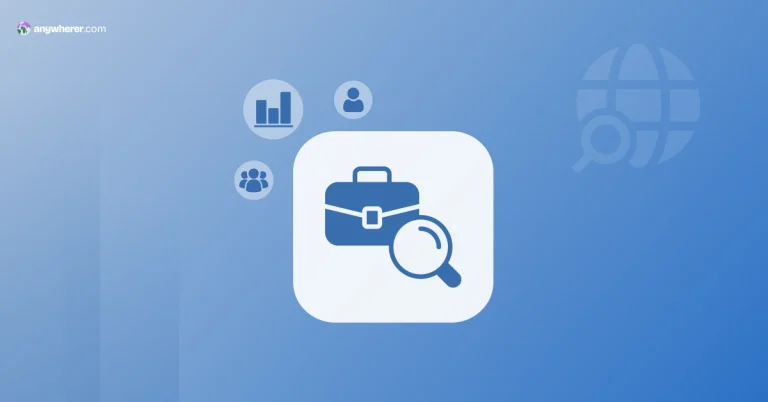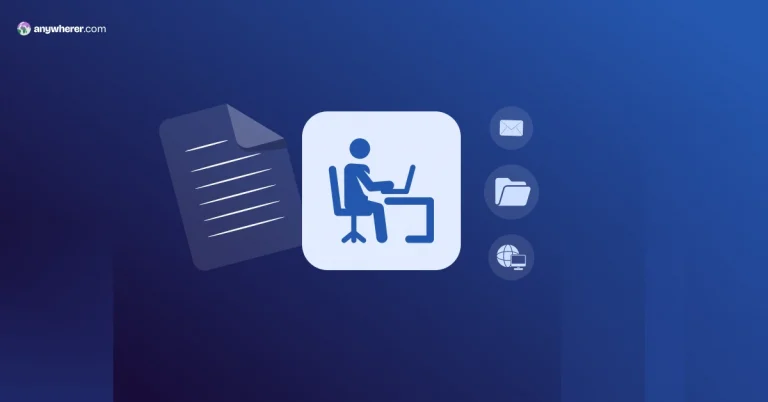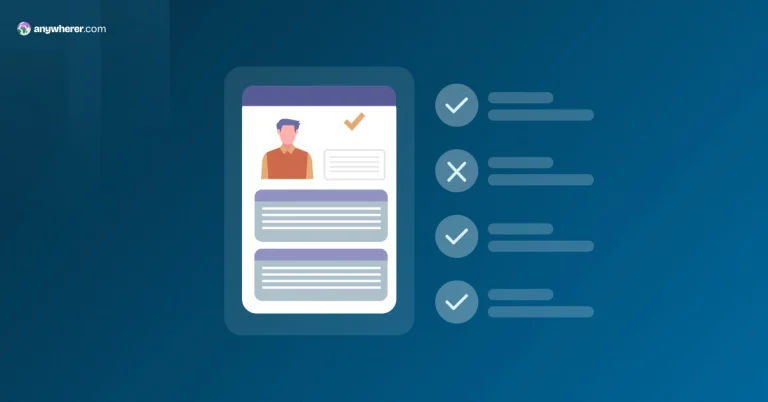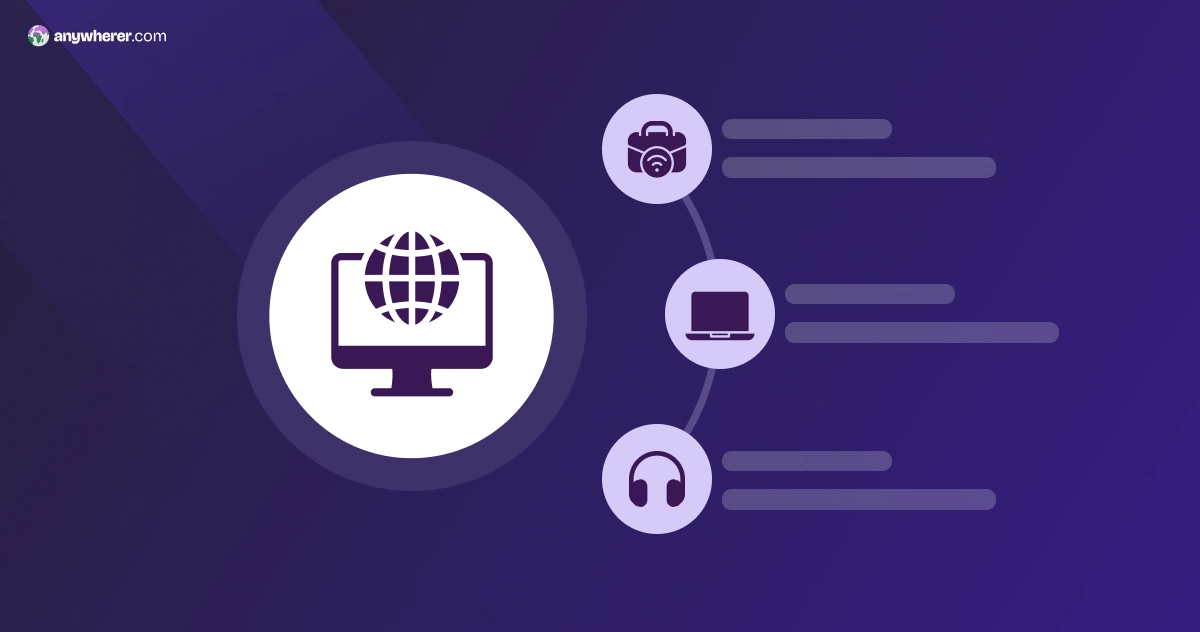Key Statistics to Boost Your Job Interview Success
As a job seeker looking to apply for either an entry-level or senior position, you will most likely have a sit down with the potential employer for an interview before receiving a job offer. And since it’s the only chance to show your qualifications and prove your suitability for the job, you need to put your best leg forward in this important meeting. But with multiple candidates to compete against, the biggest question then becomes; how do you stand out from the pack?
If you came here seeking answers on how to convince an employer to take a chance on you, you have come to the right place. In this article, we will discuss how to ace a job interview, including tips and tricks on how to answer job interview answers.
Preparing effectively for a job interview can significantly enhance your chances of success. Consider the following statistics:
- Researching the company. A survey by Workable found that 47% of employers consider candidates who have thoroughly researched the company as more favorable.
- Practicing common questions. According to Indeed, candidates who practice responses to common interview questions are 30% more likely to feel confident during the interview.
- Professional attire. Dressing appropriately can influence first impressions; 65% of hiring managers say attire affects their assessment of a candidate’s professionalism.
- Follow-up communication. Sending a thank-you email post-interview can set candidates apart, with 57% of employers more likely to proceed with candidates who follow up.
- Nonverbal communication. Body language plays a significant role in interviews, with 55% of first impressions based on appearance and body language, according to a study by Albert Mehrabian on communication. Hiring managers often notice posture, eye contact, and gestures as indicators of confidence and professionalism.
These statistics underscore the importance of thorough preparation, effective communication, and professionalism in acing a job interview.
How to Ace Your Next Interview: Pro Tips and Tricks
Below are several tips and tricks to consider when preparing for an interview.
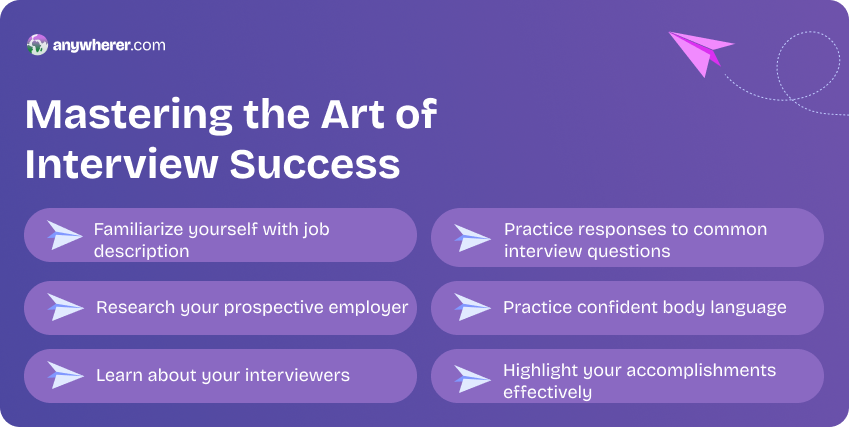
Understand the job description
Preparation for the interview begins as soon as you come across a job offer that you’d like to apply for. Whilst you don’t get access to the interview questions they will be asking, the job description is a pretty close cheat sheet. Basically, it communicates what the hiring manager is looking for, the skills, and past experience. As such, you can use it to paint a bigger picture of what the company is looking for in a candidate.
Collect intel on your potential employer
One of the best things you can ever do before an interview is to research the company to establish its goals, mission, values, and accomplishments. By knowing all these things, you’ll be better placed to answer questions such as “what can you offer our company” or even “why are you interested in working for this company”.
Investigate who’ll be interviewing you
Another tip on how to pass a technical interview is to try and learn more about the interviewers, if possible. By collecting this info, you’ll be able to learn their interests and build rapport in the course of the interview. Knowing about the interviewers also helps ease tension, and with the loosening comes ease of expressing your enthusiasm for the job.
Prepare to answer classic interview questions
Interviews come with multiple unknown variables which can throw off even the most experienced candidate. For this reason, you should try and master as many of the known variables as you can. And that includes questions like:
“What can you do for us that other candidates can’t?”
“What professional tasks do you excel at?”
“Why are you looking for a job change best answer?”
“What are you ideally looking for in your next role?”
12 Common Job Interview Questions and Answers
Talking about the known variables, let’s take a look at some common interview questions, the psychology behind them, and how to answer them.
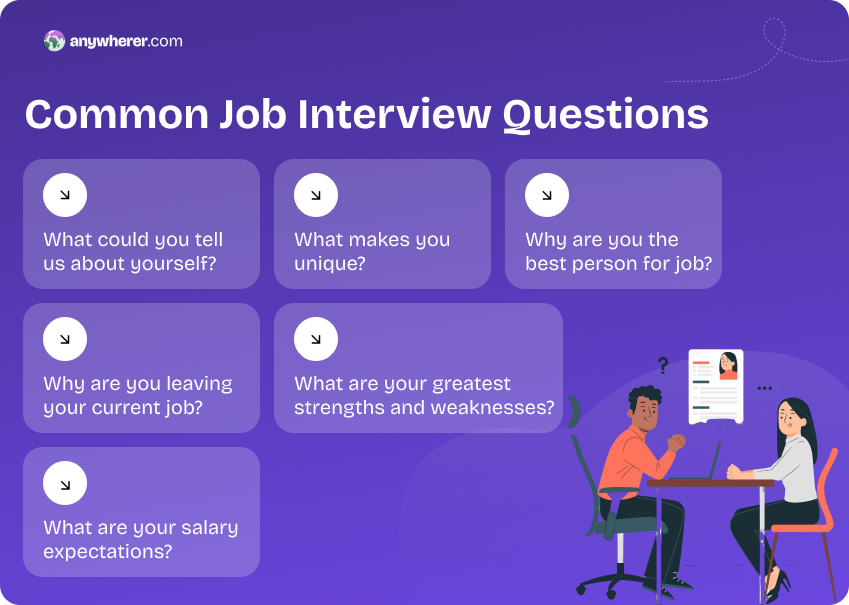
- What could you tell us about yourself?
This is a staple interview question that every interviewer is likely to start with. The primary reasoning behind this question is to try and know why you’re the right fit for the job. Here, you should try to answer the question without giving too much, or too little, personal information.
A general rule of thumb, you should try and structure your points as follows:
- Briefly introduce yourself: Your name and how long you have been working as [profession].
- Things that make you love your job or profession.
- Top 2-3 achievements that are related to the job you’re applying for.
- What makes you unique?
This question is not a free ticket to confess odd quirks or weird habits but a chance to explain how you are the best candidate for a role. It is similar to ‘tell me something that is not on your resume’, and allows the hiring team to determine how good you are at thinking on your feet.
A good example answer would be:
“I really enjoy learning new things, plus I am constantly looking for new learning opportunities.”
- Why are you the best person for the job?
Since you cannot compare yourself with other candidates that you haven’t met, all you can do is describe your passion, desire, and commitment to the position. Essentially, it’s like begging for the job position by explaining things like, what professional tasks do you excel at. Ultimately, the ‘what sets you apart from other candidates applying for this position answers’ you provide can make or break the experience.
An ideal ‘why you are an ideal candidate for this position answer’ would be:
“My skills and qualifications are what make me a great match for this position. In particular, my leadership and communication skills make me the ideal candidate that you are looking for. In my most recent job, I was overseeing a team of 50 employees, where I created a new communication system that helped increase productivity by 10% within 6 months. I’m 100% confident that I can replicate the same with this position.”
- Why are you leaving your current job?
When giving the reason for leaving job interview question answer, always be careful to avoid negativity. Basically, the hiring managers want to know what matters most to you in a job position and how you deal with undesirable situations.
The best answer for the reason for a job change in the interview would be:
“At my current company, I have built great relationships and grown my professional skill set. Recently, I decided to look for new challenges while still expanding my career horizon. The business values and mission of your organization to help businesses streamline their processes is something that I’m excited about.”
- What are your greatest strengths and weaknesses?
The job interview strengths and weaknesses question is yet another staple that you’ll come across in an interview. Although many candidates are unsure about how to approach this question, it’s possible to give a thoughtful response as long as you establish the appropriate context.
An example answer to this question would be:
Strengths
“One of my greatest strengths lies in my leadership skills. In my previous position as the head of sales, I successfully organized training programs for the sales teams to ensure they were fully equipped to handle their roles. As a result, the sales shot by 15% in six months.”
Weakness
“I’ve often struggled with public speaking and presentations. But to overcome this fear, I’m currently taking a public speaking certificate course at a local community college to boost my confidence and master the art of public speaking.”
- What are your salary expectations?
Although this appears to be a simple and straightforward question, you need to strike a balance between what’s good for you and the company. The main reason why this question is asked by the hiring managers is to establish whether your salary expectations are at par with the industry average or not.
An example answer would be:
“Given my knowledge and experience, my salary expectations for this role are between $55,000 and $65,000. However, I am open to negotiations depending on other available compensations.”
- What are your goals for the future?
Here, the interviewer wants to understand your professional drive and future ambitions. You should try and provide a goal-oriented response with a specific outcome within your profession or the company’s goals.
An example answer would be:
“My ultimate goal in finance is to take on a managerial role. Given the opportunity, I’m positive that I will make a great and effective manager. I’m passionate about working with others to achieve a common goal and would welcome the opportunity to build a successful finance team.”
- Why should we hire you?
Results in the HR world are measured by the quality of candidates hired. This is especially the case in IT recruitment agencies, where employee retention comes before everything. If they perform well, the interviewer is considered brilliant and probably receives an annual bonus. If they turn out to be duds, the interviewer’s professional reputation could be jeopardized.
And this is why the “why should we hire you” question is a personal favorite for many hiring managers. With this question, they’re seeking to know your status as the best candidate for the position.
An example answer would be:
“I believe that my knowledge and experience with IT, more specifically in software engineering, make me the best candidate for this position. In my recent job position as a software engineer, I was tasked with identifying, designing, installing, testing, and maintaining software systems for many of our clients.
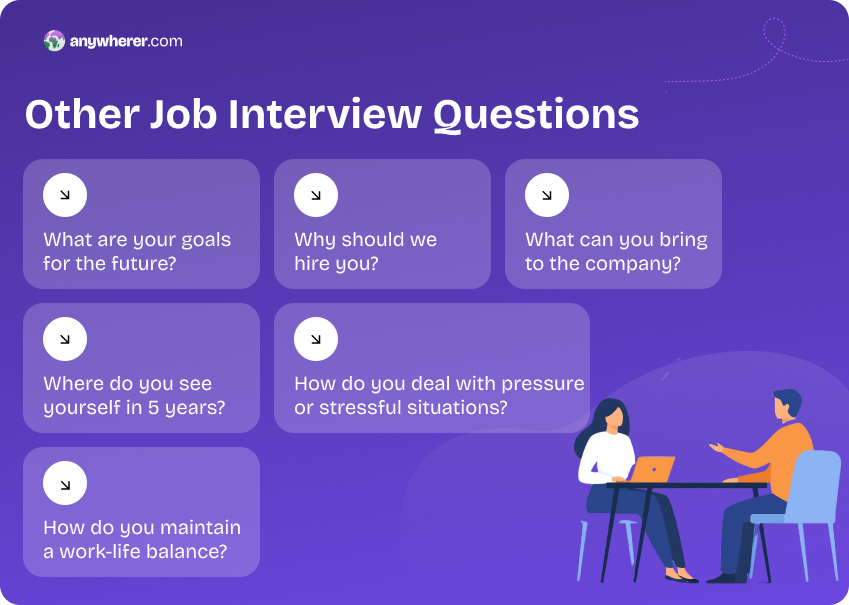
- How do you deal with pressure or stressful situations?
Every job position comes with its fair share of stress. Whether it’s tight deadlines, impatient customers, or any other factor, interviewers want to ensure that you won’t be bailing out when faced with a stressful situation at work or home.
When responding to this question, interviewers are watching out for red flags in your response, including “I don’t get stressed.”
An example answer would be:
“Pressure is super-important to me. I’ve found that in small and healthy doses, it motivates me to stay focused and operate as efficiently and effectively as possible. For example, I once had two large projects that needed to be completed within the same week, which came with a lot of pressure. I was able to break them down into small subtasks and apportion sufficient daily time. I’m happy to report that I was able to meet the deadline and avoid any unnecessary delays.”
- What can you bring to the company?
This question is similar to ‘Why should we hire you?’ and ‘Why do you think you’ll succeed in this job?.’ The simplest way to tackle this question is to bring all your academic background, skills, interests, qualities, values, and life experience in the context of growing the company.
How to answer what can you bring to the team or company interview question:
“I’ve spent the better part of my professional life working as a graphic designer, which is the primary focus of this role, too. Along with that, I’ve been helping companies in the same industry niche as yours, meaning I won’t need any training to learn my way up the ropes.”
- Do you prefer working independently or on a team?
Whilst there isn’t a right or wrong answer to this question, you need to explain why you prefer one over the other. The only wrong answer here is a dishonest one, as you don’t want to be placed in an environment or a position that you don’t love.
Example answers would be:
Team
For the most part, I’ve found working in a team more beneficial as you have multiple brains coming together to achieve a common goal. And for this to happen, you need to be open-minded, focused, and cooperative, and I pride myself on having all these qualities.
Independently
I prefer working independently. In my opinion, having multiple people handling the same project could create confusion, ultimately leading to some factors being overlooked. Still, if I am to be personally held accountable for the project, I want to ensure that it ticks all my boxes.
- Do you have any questions?
As the interview comes to an end, this question will most likely pop up. No matter how confident you feel about getting the job, always resist the urge to say no—it indicates that you aren’t invested in the position.
Some of the questions to ask employers at the end of the interview include:
- How would you describe your company’s culture?
- What should I expect on a typical day at this job?
- Do you have any pressing concerns about my candidacy?
- Amid the COVID-19 pandemic, what tips for working remotely do you have for your workers?
How to Know If a Virtual Interview Went Well
After you are done with the interview, here are a few signs you will get the job after interview:
- Positive body language
- Casual conversations after the interview
- Introduction to the team members
- Discussion about follow-ups
- An office tour
Essential FAQs for Mastering Job Interviews with Confidence
How can I prepare for a job interview effectively?
Research the company, practice common interview questions, review the job description, and prepare examples of your achievements using the STAR method.
How do I highlight my strengths during an interview?
Focus on specific examples where your skills and achievements made a positive impact. Tailor your strengths to align with the job requirements.
How should I handle a tough question during an interview?
Stay calm, take a moment to think, and structure your answer. Be honest if you don’t know something and focus on how you would approach finding the solution.
What are some tips for making a good first impression?
Dress appropriately, arrive on time, offer a confident handshake, and maintain eye contact to convey professionalism and enthusiasm.
What should I avoid saying or doing in a job interview?
Avoid speaking negatively about past employers, oversharing personal details, or appearing unprepared. Steer clear of vague answers, interrupting the interviewer, or focusing solely on salary and benefits too early in the conversation.
What should I do after the interview to increase my chances of success?
Send a thank-you email within 24 hours to express gratitude and reinforce your interest in the role. Mention a key discussion point to leave a lasting impression.
Follow our tips and tricks and learn how to convince an employer to take a chance on you like a pro!
Marharyta is a seasoned marketing expert with a rich background in supporting dedicated development teams and a keen understanding of the nuances of global remote employment solutions. With a solid track record of executing impactful campaigns, crafting strategic marketing plans, and delivering high-quality content, Marharyta plays a key role in establishing Anywherer as a reliable source in the EOR and international workforce management industry.

